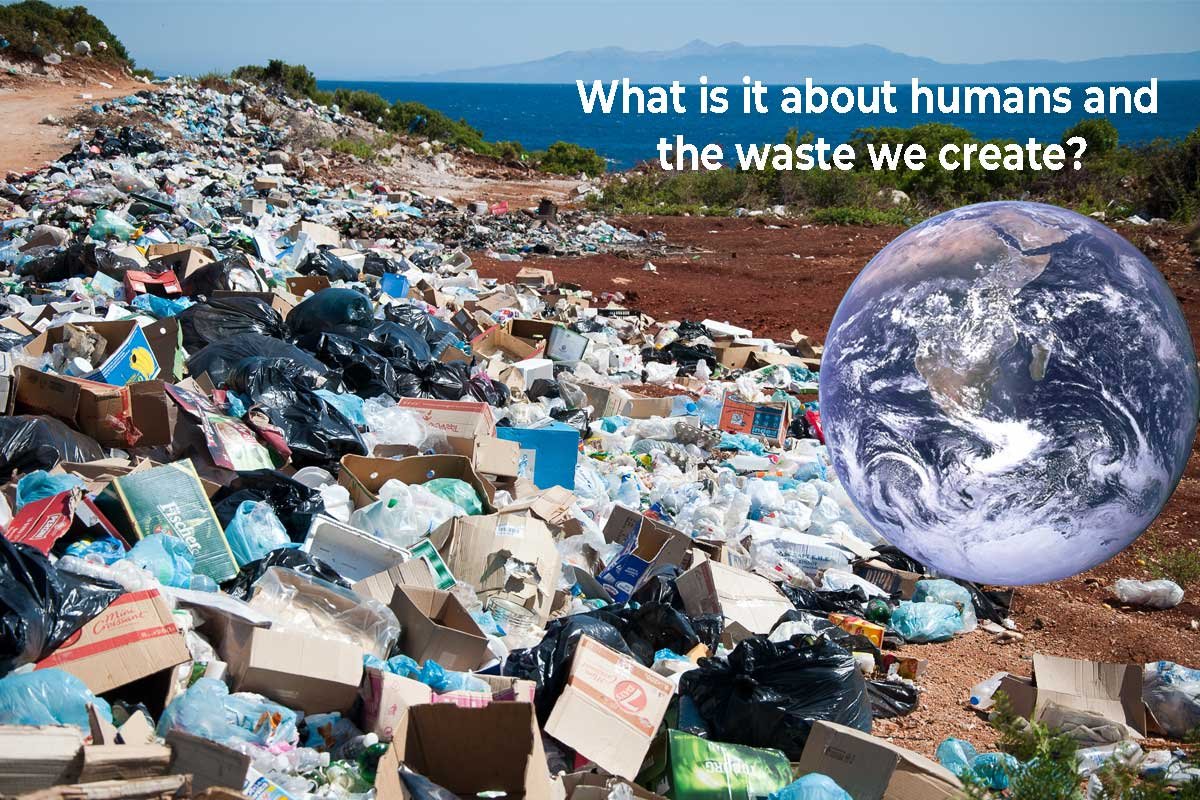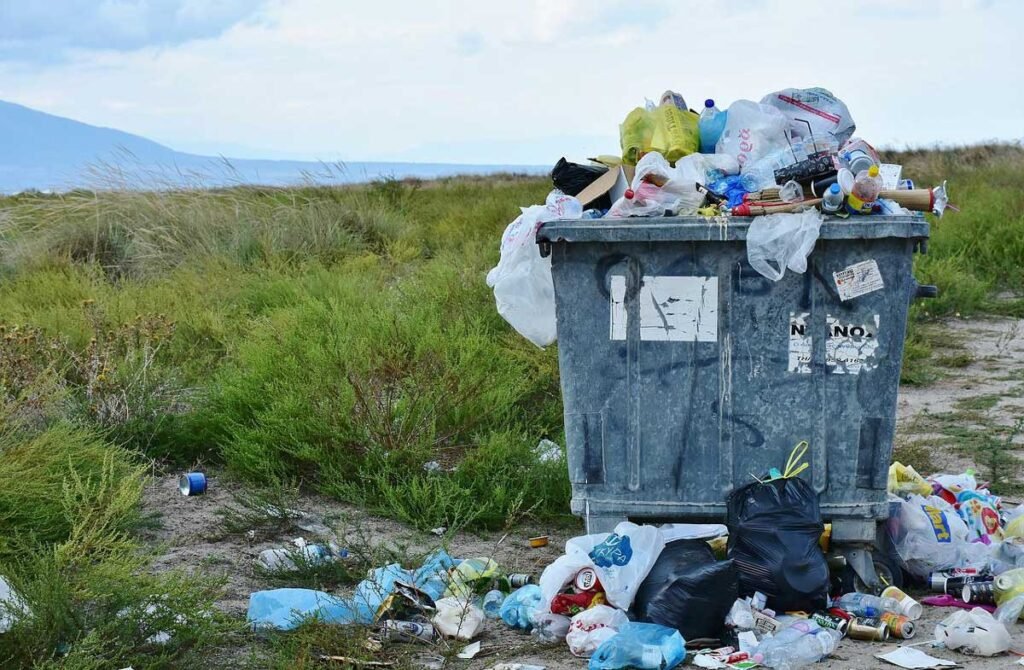Why do humans create waste? We create waste no matter what we do. We create food waste, plastic waste, space waste, industrial waste, and more. It’s like whatever humans do, wherever we go, we create waste.
This doesn’t mean all waste is bad and is not recyclable. Some of it is dangerous like plastic waste and some of it is good like organic food waste
A developed country creates more waste than a developing country. Even though a developing country like India would look dirtier than any European country or the USA. This is because a developed country has a better waste management system and they also ship the waste which is not recyclable to poorer countries. Which is not cool BTW!
This pandemic has doubled our waste production in a very short time. The mask and hand gloves amount to more plastic waste in our environment.
We need to reduce the number of things we consume, try to use more sustainable things which can be used multiple times, and we have to increase our capacity for recycling things. We have to reduce our overall waste generation to eliminate our waste problems.
Let’s talk Stats
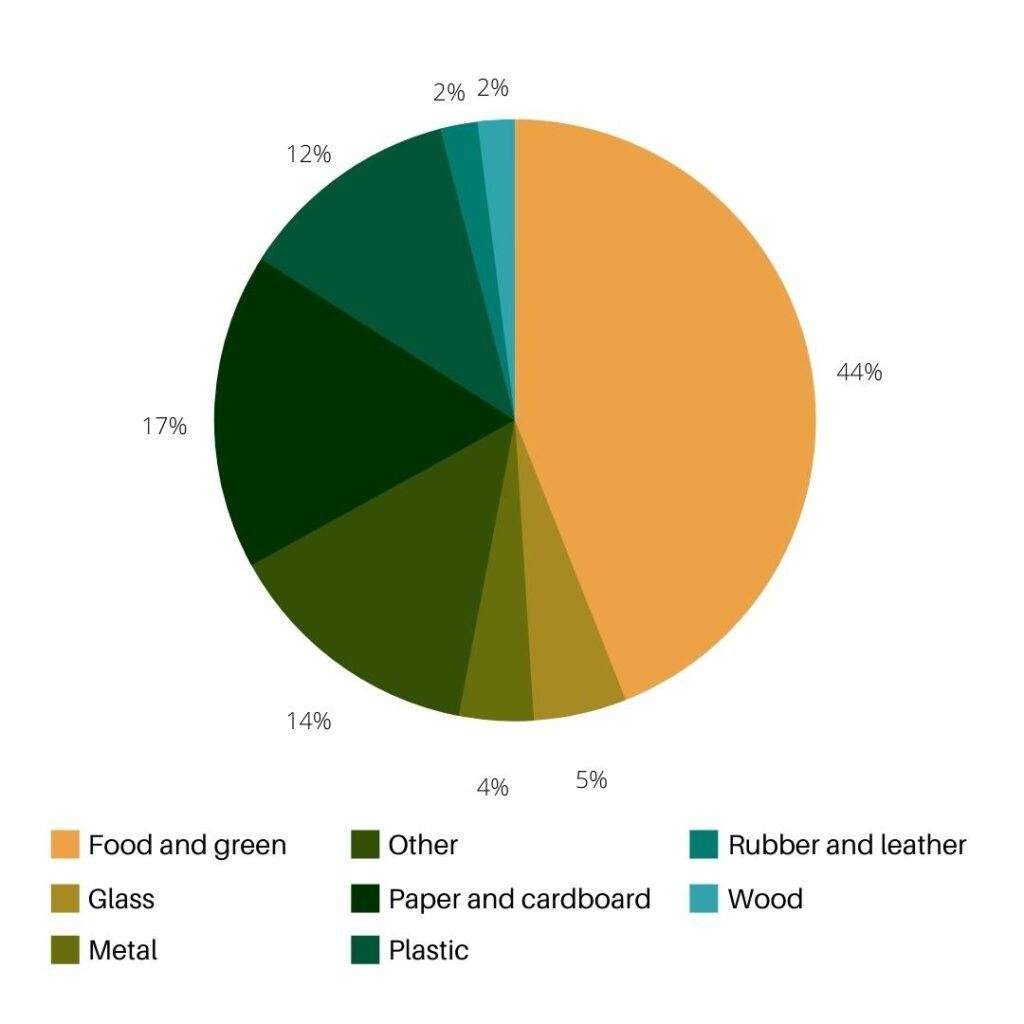
The world generates 2.01 billion tonnes of municipal solid waste annually. A person in a single day creates an average waste of 0.11 to 4.54 KG of waste. Every sec we produce 41 tonnes of garbage globally.
Globally we generate 13 tons of hazardous waste every second, which is equal to 400 million tons per year as of Feb 2021.
1.4 billion tonnes of total food is wasted globally. 61% is from households, 26% from food services, and 12% from retail. This suggests that 17% of global food production may be wasted according to the UNEP report.
There are 8.3 billion tons of plastic to date. In India, 3.5 million tonnes of plastic are generated every year. And we started creating plastic around 1862. If we do not stop creating plastic, we would create a similar amount of plastic in 20 years as we have created in 150 years.
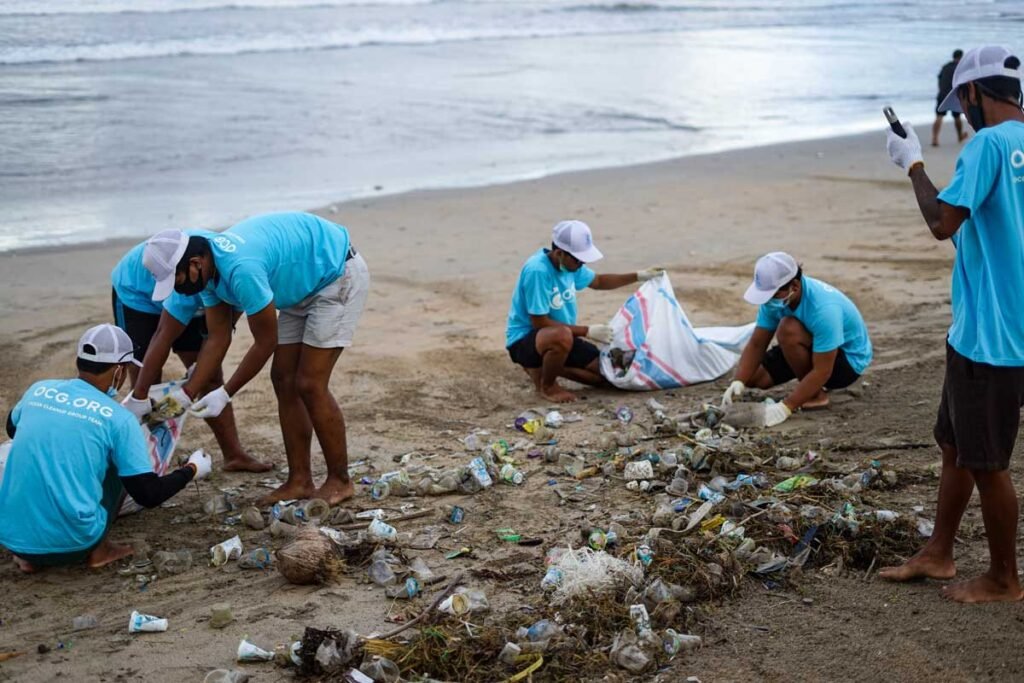
14 million tonnes of plastic end up in oceans every year. This is harming our marine life and affecting our lives. 5.25 trillion micro and macro pieces of plastic are in the ocean. Most of them are smaller than a few centimetres. Because of the tides, it ends up in the deep parts of the ocean and on our beaches.
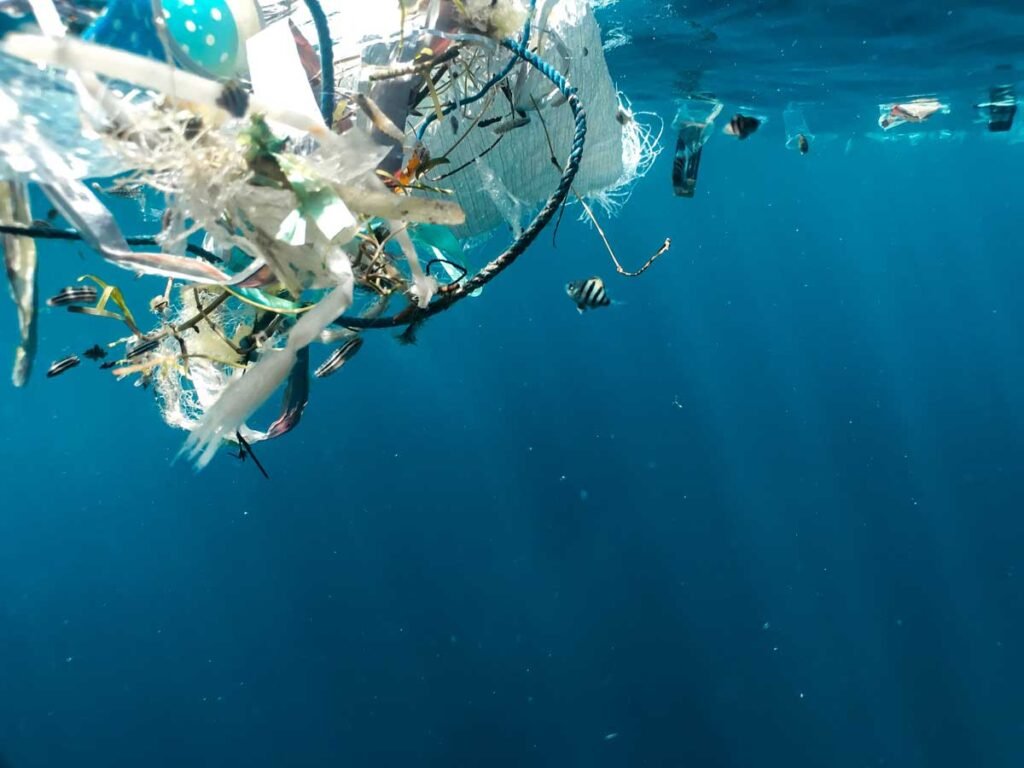
Industries generate a lot of chemical and hazardous waste, which is dumped into our rivers and oceans.
Solar panels create waste after their lifetime. Currently, there are 250000 mt of solar panels waste, and it is likely to grow to 78 million mt by 2050. Solar panels can be recycled, but it is not done on a large scale because of the high cost. In the European Union, recycling solar panels is compulsory. But not all materials are reusable because of their purity. Silicon which is one of the materials used to create solar panels is not of high purity, and hence it cannot be used to create solar panels. Instead, it is used to make the sole of the shoes we wear.
There are 4877 active satellites orbiting our planet, around 3000 are dead satellites, and around 34000 space junk larger than 10 cm. Additionally, half-million space debris with a size of 0.4 inches to 1 cm, and about 100 million pieces of debris with a size of 0.04 inches to 1mm are roaming around our planet.
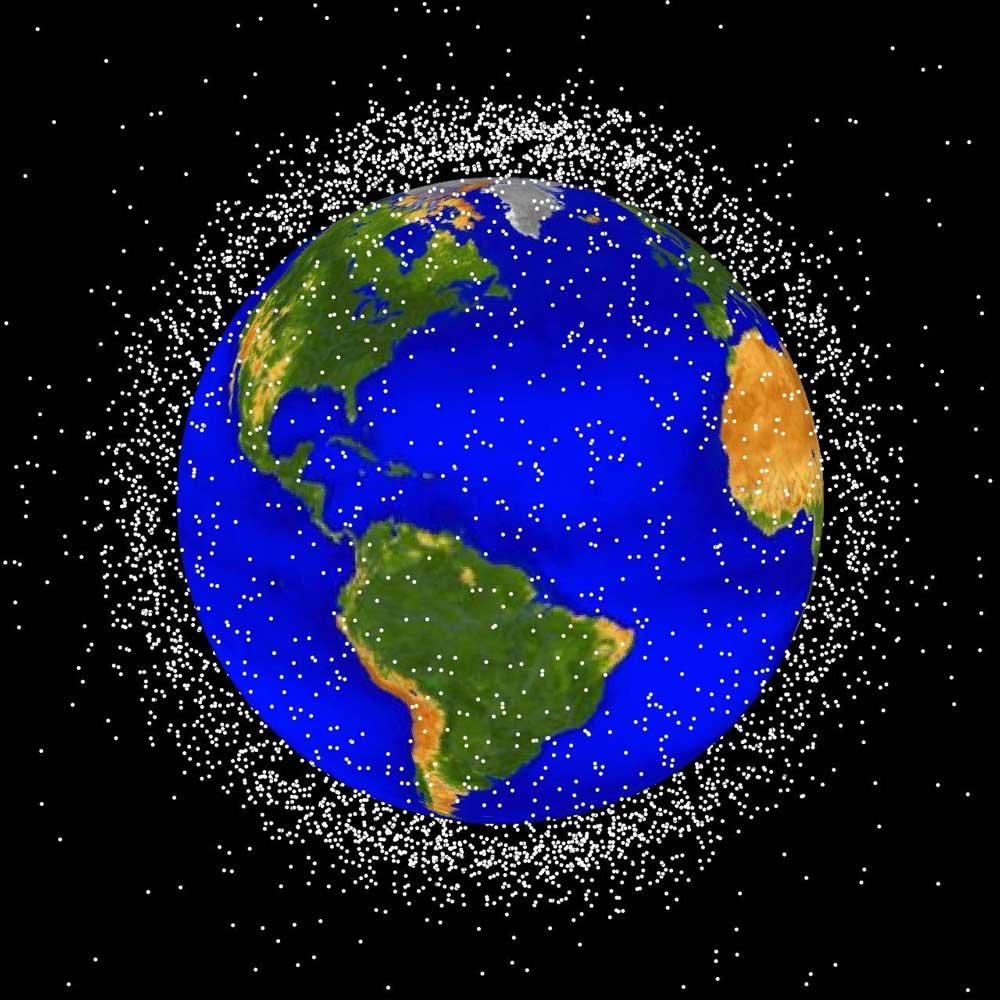
The problem
We have been creating waste since our ancestors. When we discovered fire we created ash as a waste product. Then we started consuming cooked food, we generated organic waste. We started industrialization, we had more harmful waste generated from it into our environment, soil and water.
We started exploring space, we have space junk in our atmosphere, we went to the moon and mars, we have rovers there that are not working and stranded there as a waste.
Even the movie The martian it is showed how a human tried to survive there and created a lot of waste behind him. There is nothing wrong with that, but just understanding how much humans create waste and destroy the environment when we are trying to survive and live.
I am not saying that we should not explore or we should stop living, but we should think about the consequences and waste we generate and try to create and use more sustainable products.
We always create new technology to solve our problems but don’t think about the waste generated in the initial years. Let’s take the example of satellites, we are sending a different kind of satellite from the 1960s into our atmosphere and onto the moon and mars, but we never thought about the waste and debris it will generate, after around 40-50 years we realize that we need to clean the space debris. The same goes with solar panels, we created them to solve our energy needs via sustainable methods, but we did not think about how would we recycle old solar panels, as the life of a solar panel is 25-30 years.
Lithium-ion batteries used in our mobiles, laptops, and electric cars are also not widely recycled as of now because of the complicated process. And we are mostly deepened on lithium-ion batteries for our future transport “the electric cars”. Again we are committing the same mistake and not using sustainable methods.
This is common for all the new technology we have created, moving ahead we need to think about the waste we generate from each and everything we consume, try to recycle as much as possible, and also try to create a sustainable way ahead.
The solution
Let’s talk about some solutions, which are already been implemented and which can be implemented in the future
First, we need to separate our waste, all the types of waste should be separated, like separating organic waste from e-waste or harmful chemical waste. Proper education and infrasturure need to be placed for this. Humans need to stop filing the land with waste and create big landfills and stop burning the waste.
The waste needs to be turned into cash, then only humans will be attracted to waste
There are various examples of recycling the waste and truing it into various products.
We have recycling methods like turning unusable plastic waste into different kinds of products like different kinds of plastic products or toys or other products. Just we need to make sure the recycled products are sustainable
We should focus on multiple usages of any product we create, rather than one-time use.
Planned obsolescence is one of the main culprits when it comes to e-waste. This creates problems as the products are one-time use only and you are forced to buy again, and the old product is e-waste.
Author Huang the founder and CEO of Miniwiz who created hospital wards for covid patients out of plastic waste around him is one of the recent examples of recycling.
I like electric cars but, lithium-ion battery is not a solution for us, we need to think about new sustainable tech for electric car batteries. There is a new development in sodium-ion batteries which is far more efficient than lithium-ion. We should also think about the hydrogen-powered car, as it is also quite more sustainable than a lithium-ion battery. But we need to have detailed research and development and then implement any solution
Most important of all, we need to think about waste, as we invest in new technology to solve our problems, because new tech will bring in more new kinds of waste which will not be a problem at first but in a later stage, it becomes one.
Conclusion
I have not mentioned all the examples that are out there in the current market, but we are not doing enough to reduce or eliminate the waste we are creating. It’s us humans who love to solve our own problems for the time being but do not think about the future of our planet, our environment or even ourselves. To first reduce and then stop creating unnecessary waste humans need to stop ignoring the waste.
I like this video they create good informative videos you can check them out.

